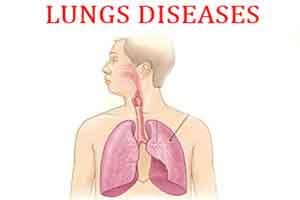- Home
- Editorial
- News
- Practice Guidelines
- Anesthesiology Guidelines
- Cancer Guidelines
- Cardiac Sciences Guidelines
- Critical Care Guidelines
- Dentistry Guidelines
- Dermatology Guidelines
- Diabetes and Endo Guidelines
- Diagnostics Guidelines
- ENT Guidelines
- Featured Practice Guidelines
- Gastroenterology Guidelines
- Geriatrics Guidelines
- Medicine Guidelines
- Nephrology Guidelines
- Neurosciences Guidelines
- Obs and Gynae Guidelines
- Ophthalmology Guidelines
- Orthopaedics Guidelines
- Paediatrics Guidelines
- Psychiatry Guidelines
- Pulmonology Guidelines
- Radiology Guidelines
- Surgery Guidelines
- Urology Guidelines
Diet rich in apples and tomatoes restores lung damage caused by smoking

A study from the Johns Hopkins Bloomberg School of Public Health found the natural decline in lung function over a 10-year period was slower among former smokers with a diet high in tomatoes and fruits, especially apples, suggesting certain components in these foods might help restore lung damage caused by smoking.
The researchers found that adults who on average ate more than two tomatoes or more than three portions of fresh fruit a day had a slower decline in lung function compared to those who ate less than one tomato or less than one portion of fruit a day, respectively. The researchers inquired about other dietary sources such as dishes and processed foods containing fruits and vegetables (e.g. tomato sauce) but the protective effect was only observed in fresh fruit and vegetables.
The paper, which is part of the Ageing Lungs in European Cohorts (ALEC) Study, funded by the European Commission and led by Imperial College London, also found a slower decline in lung function among all adults, including those who had never or had stopped smoking, with the highest tomato consumption. Poor lung function has been linked with mortality risks from all diseases, including chronic obstructive pulmonary disease (COPD), heart disease, and lung cancer.
The findings appear in the December issue of the European Respiratory Journal.
"This study shows that diet might help repair lung damage in people who have stopped smoking. It also suggests that a diet rich in fruits can slow down the lung's natural aging process even if you have never smoked," says Vanessa Garcia-Larsen, assistant professor in the Bloomberg School's Department of International Health and the study's lead author. "The findings support the need for dietary recommendations, especially for people at risk of developing respiratory diseases such as COPD."
For the study, the research team assessed diet and lung function of more than 650 adults in 2002, and then repeated lung function tests on the same group of participants 10 years later. Participants from three European countries -- Germany, Norway, and the United Kingdom -- completed questionnaires assessing their diets and overall nutritional intake. They also underwent spirometry, a procedure that measures the capacity of lungs to take in oxygen.
The test collects two standard measurements of lung function: Forced Exhaled Volume in 1 second (FEV1), which measures how much air a person can expel from their lungs in one second; and Forced Vital Capacity (FVC), the total amount of air a person can inhale in 6 seconds. The study controlled for factors such as age, height, sex, body mass index (an indicator of obesity), socio-economic status, physical activity and total energy intake.
Among former smokers, the diet-lung-function connection was even more striking. Ex-smokers who ate a diet high in tomatoes and fruits had around 80 ml slower decline over the ten-year period. This suggests that nutrients in their diets are helping to repair the damage done by smoking.
"Lung function starts to decline at around age 30 at the variable speed depending on the general and specific health of individuals," explains Garcia-Larsen "Our study suggests that eating more fruits on a regular basis can help attenuate the decline as people age, and might even help repair damage caused by smoking. Diet could become one way of combating rising diagnosis of COPD around the world."

Disclaimer: This site is primarily intended for healthcare professionals. Any content/information on this website does not replace the advice of medical and/or health professionals and should not be construed as medical/diagnostic advice/endorsement or prescription. Use of this site is subject to our terms of use, privacy policy, advertisement policy. © 2020 Minerva Medical Treatment Pvt Ltd